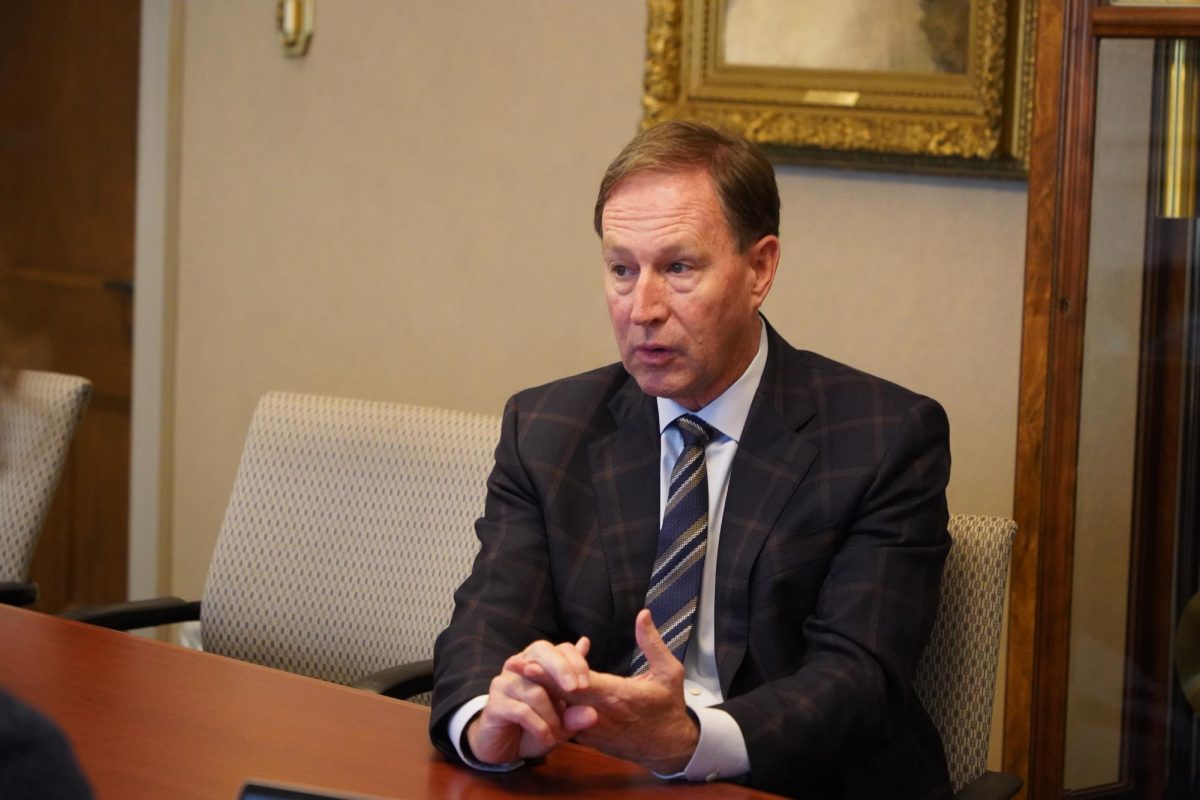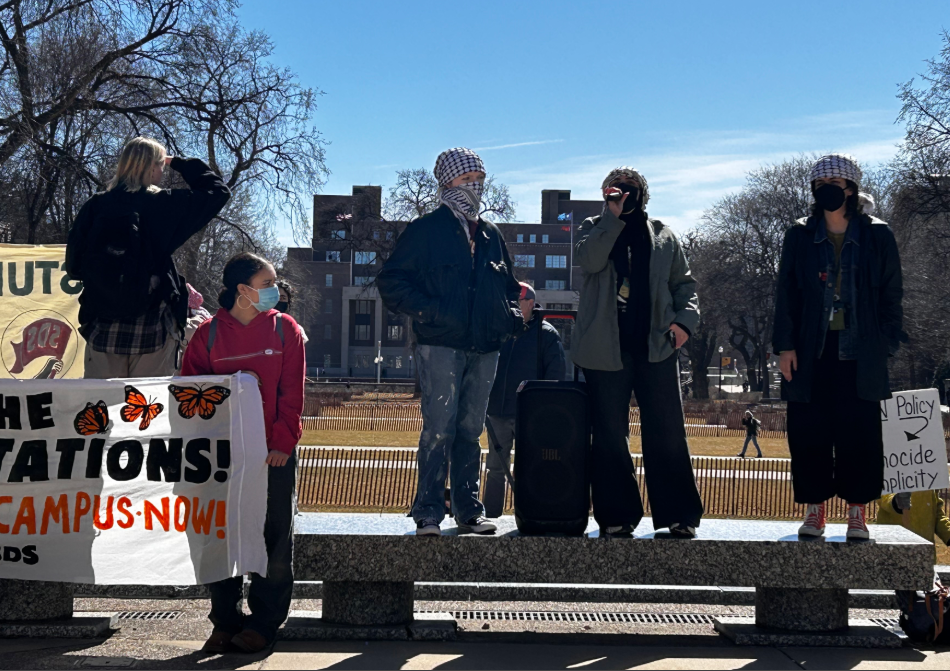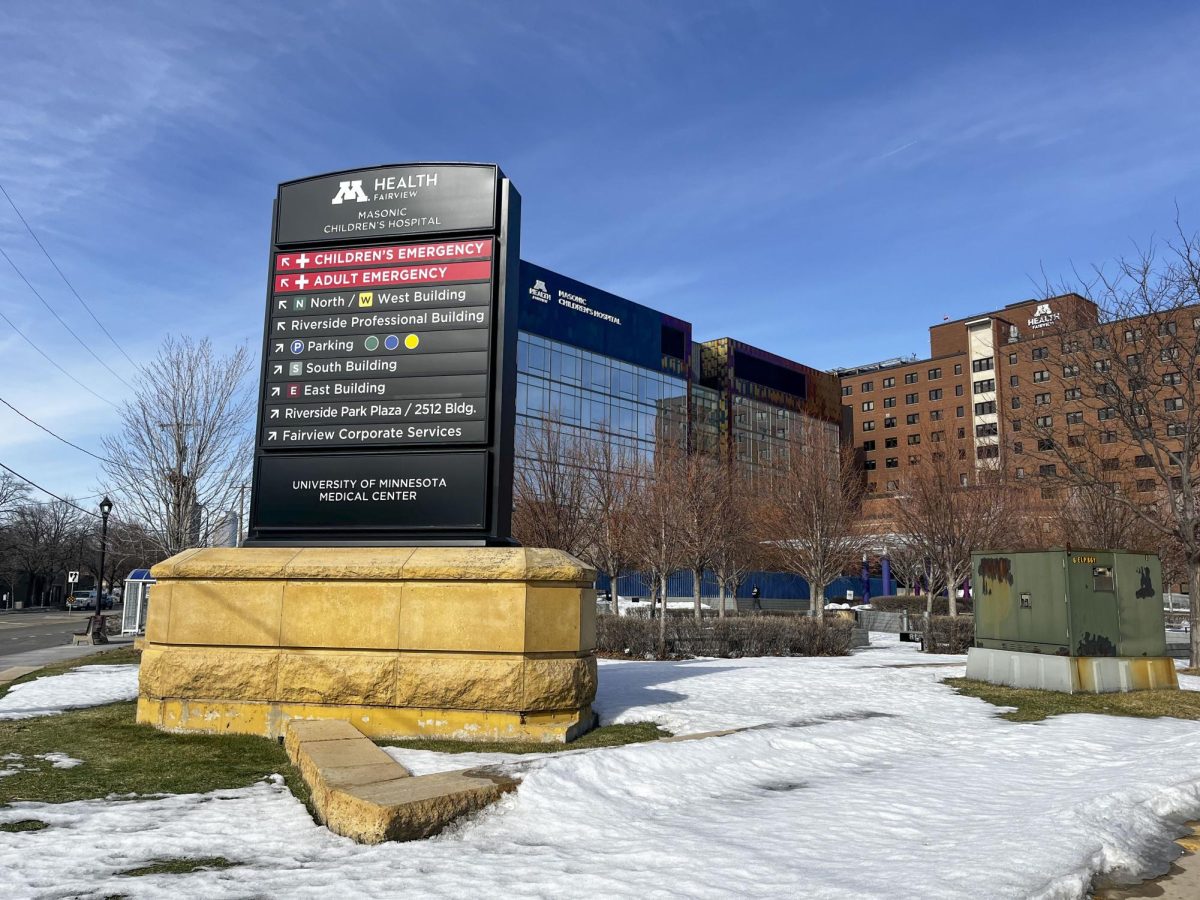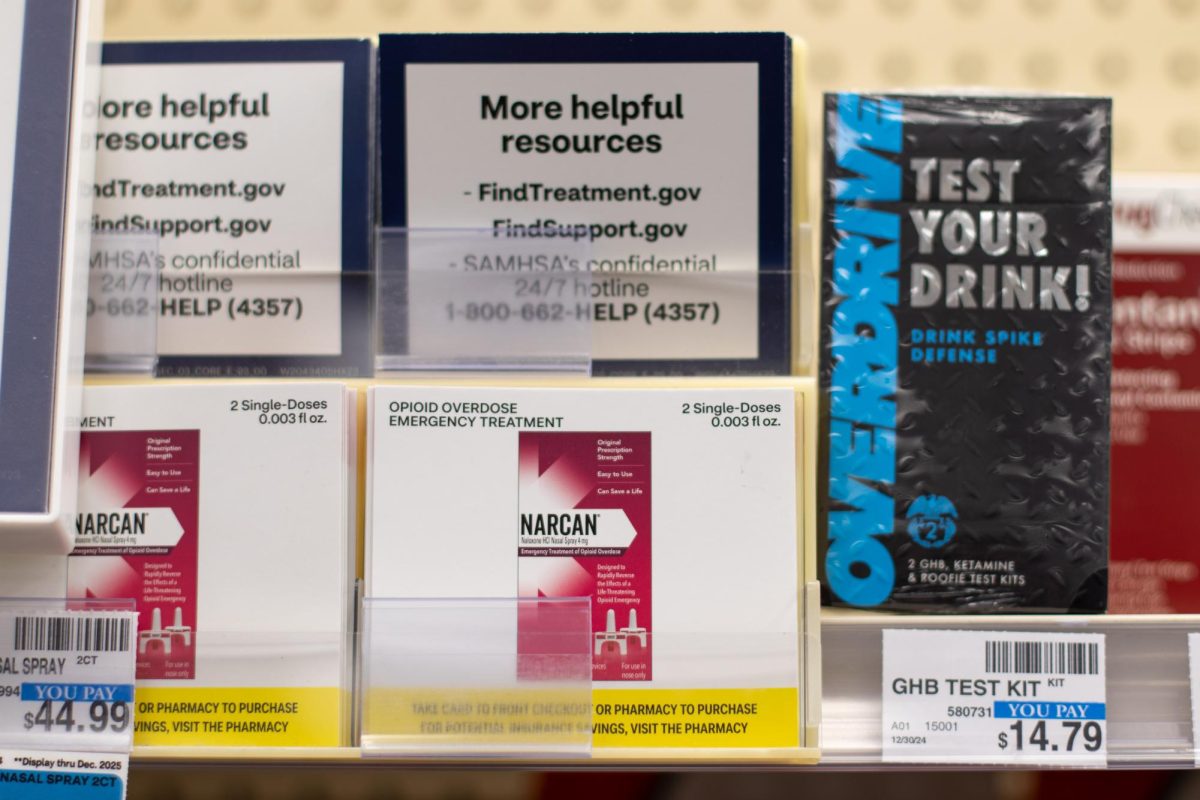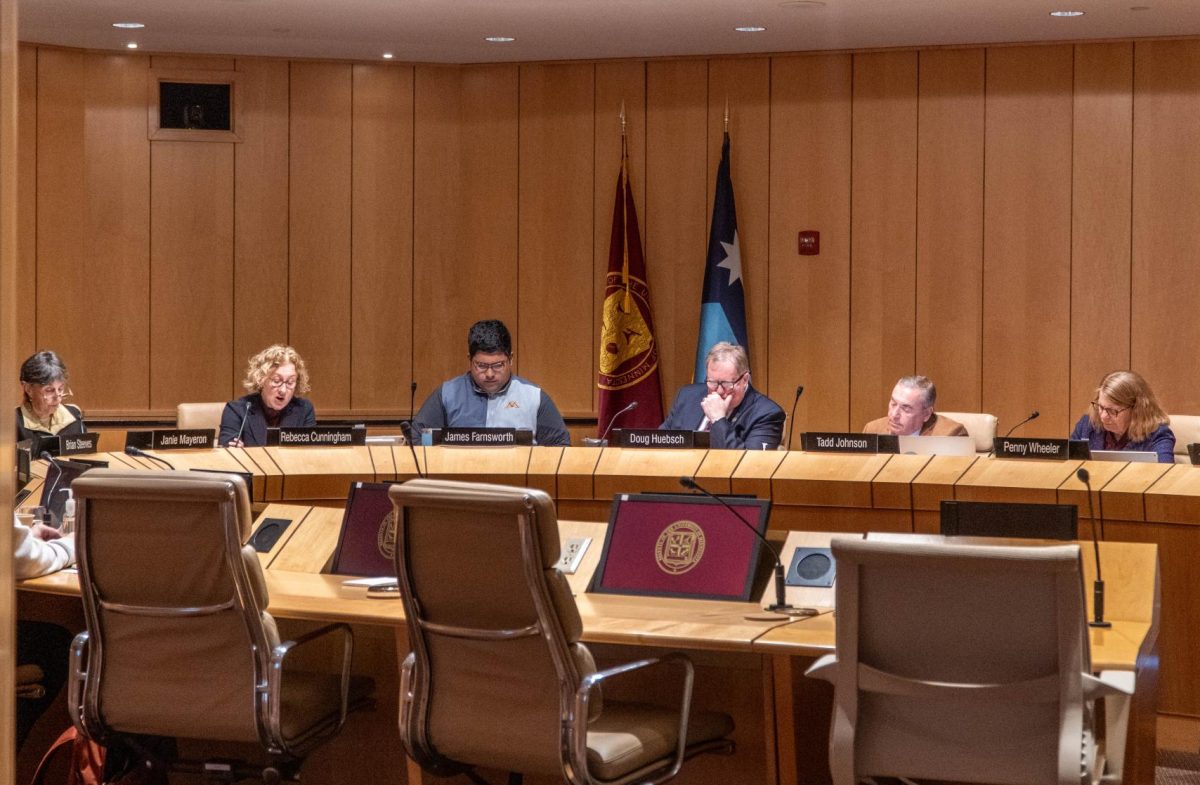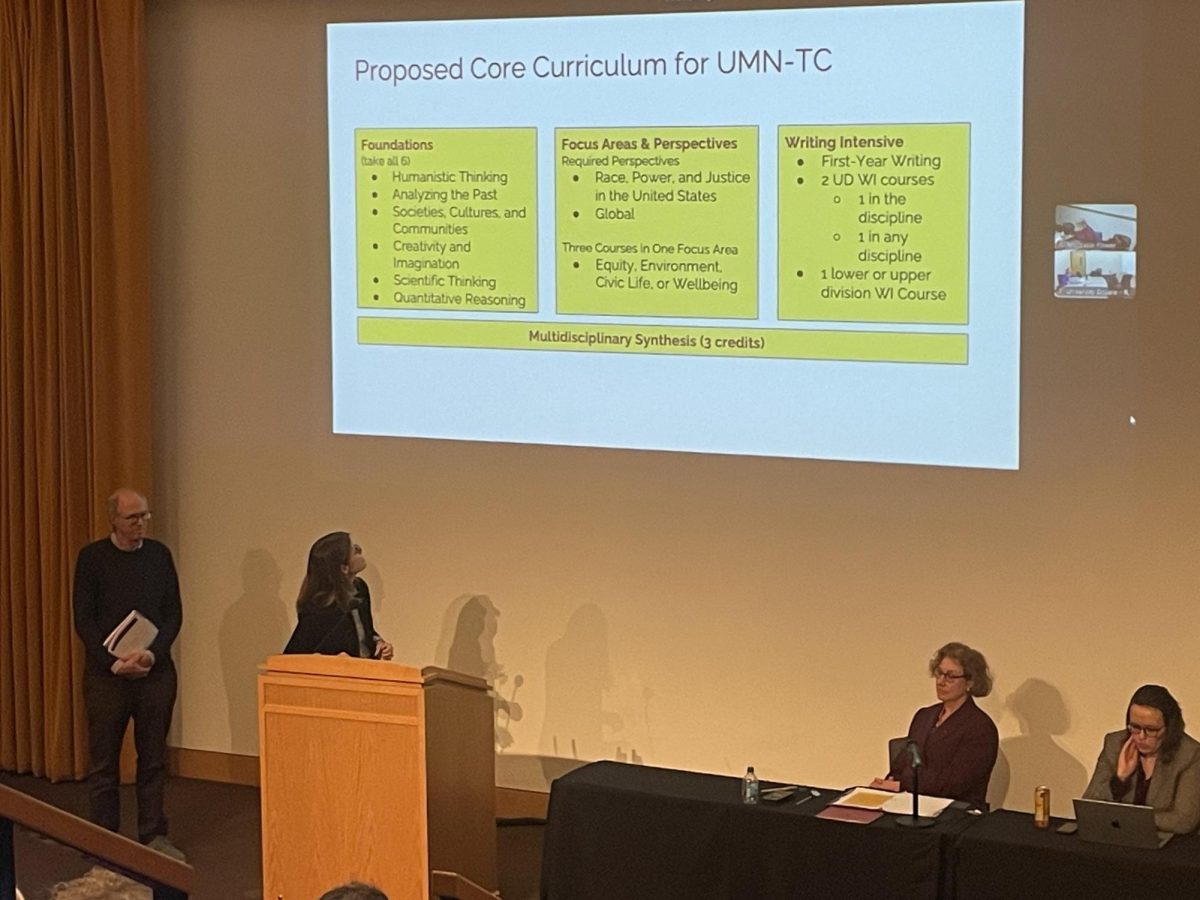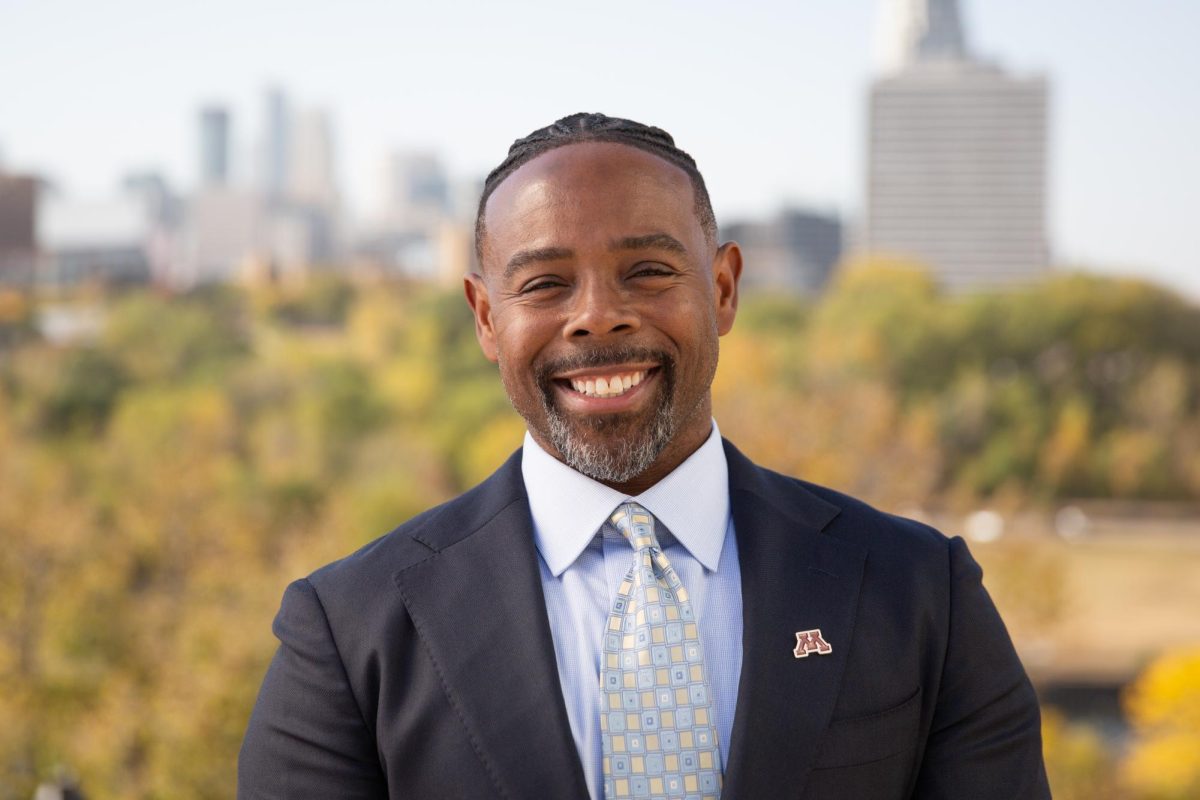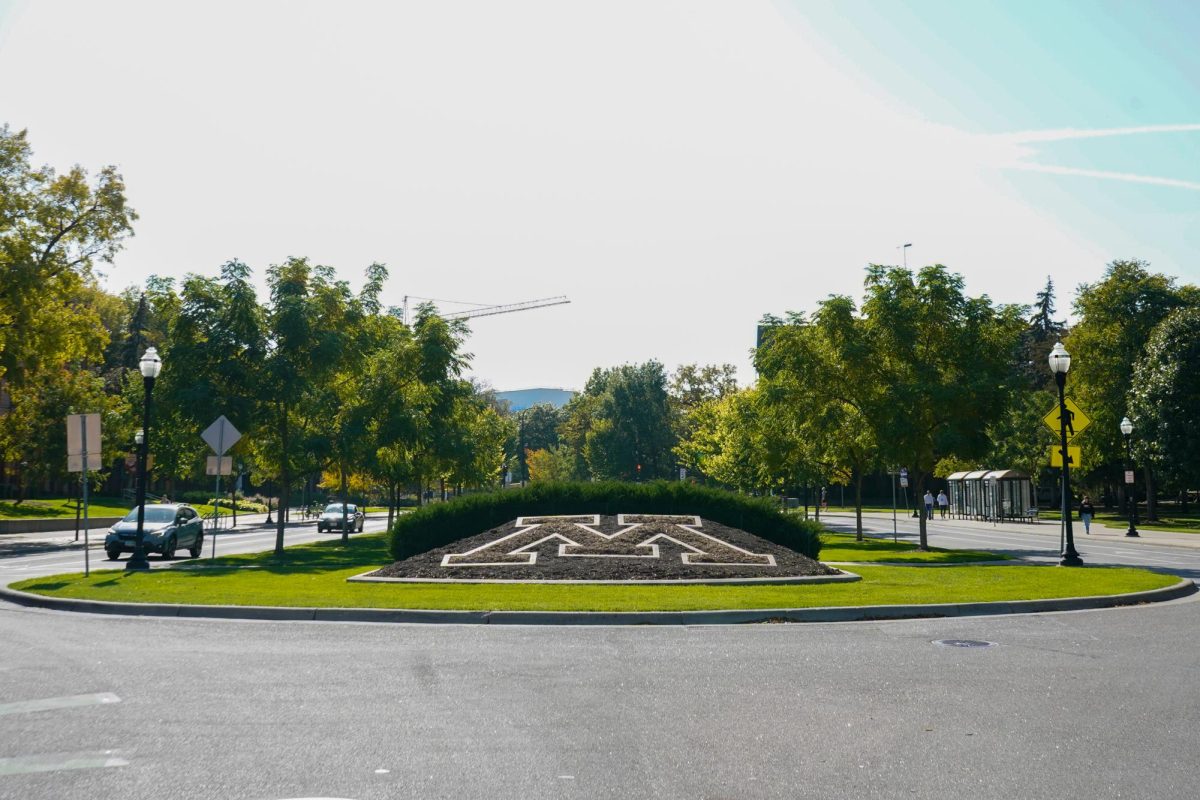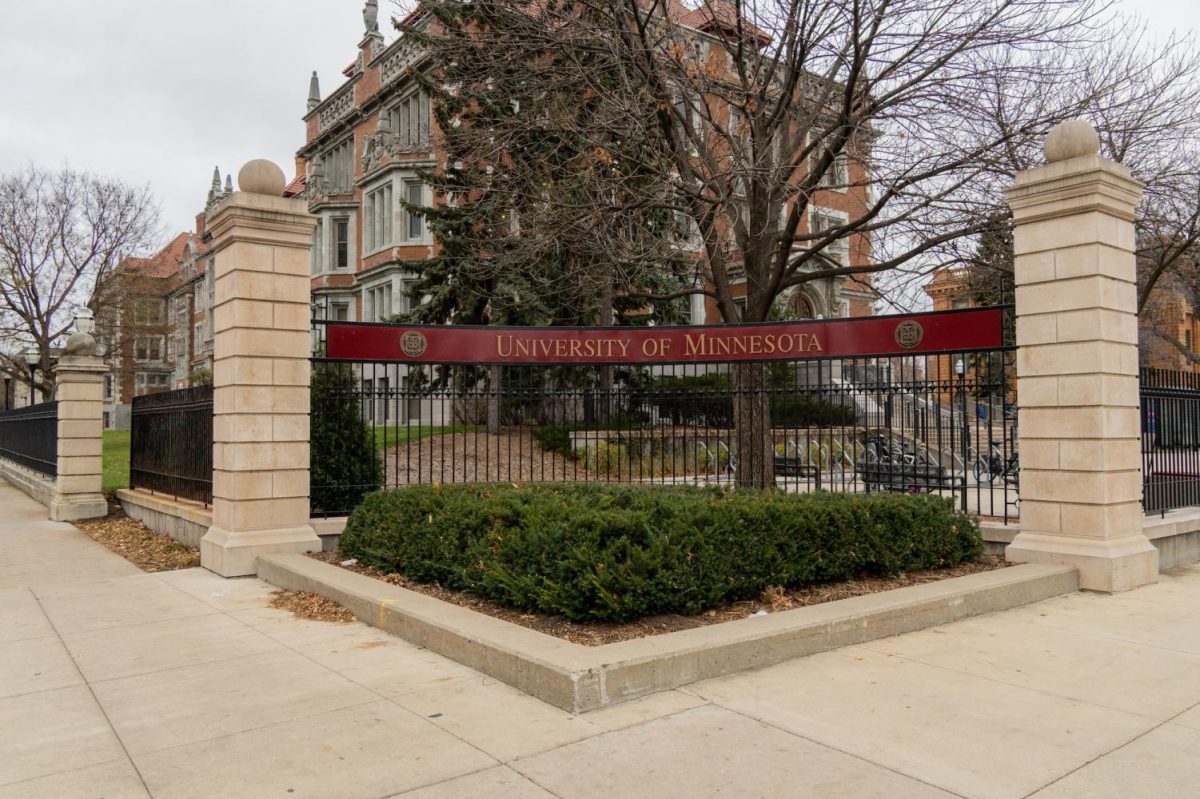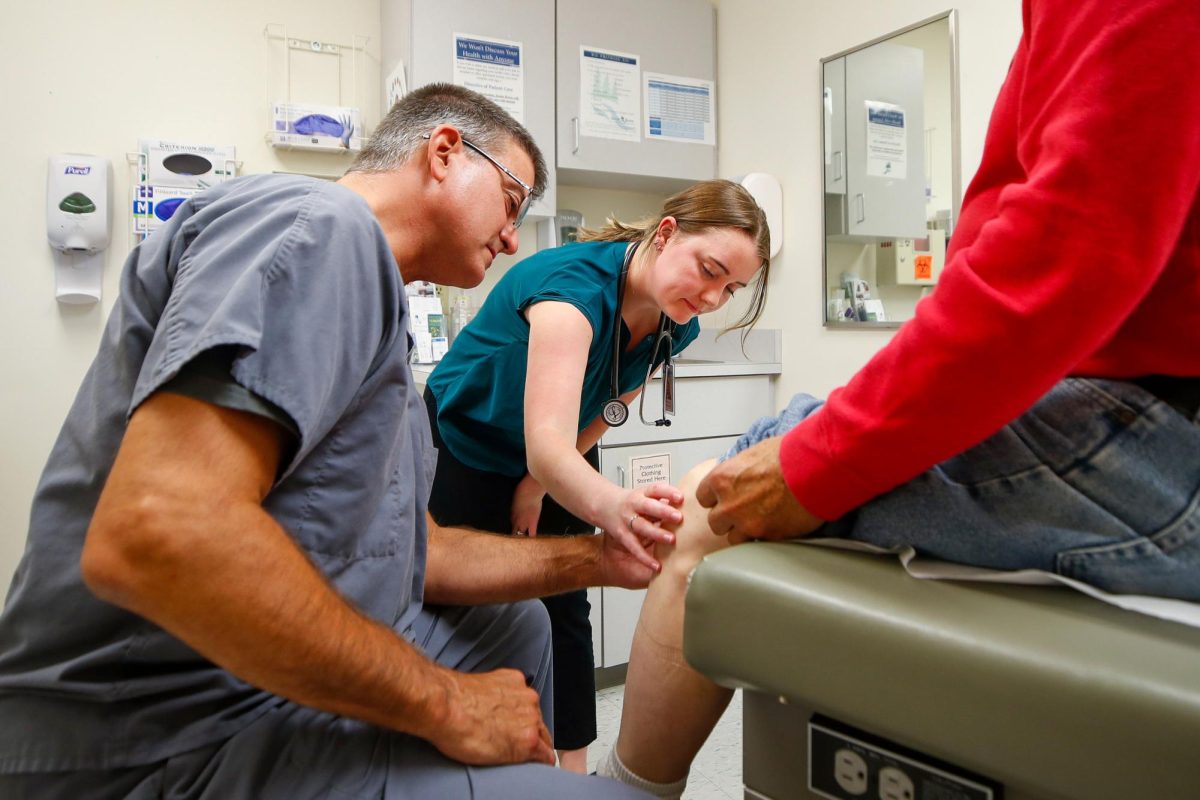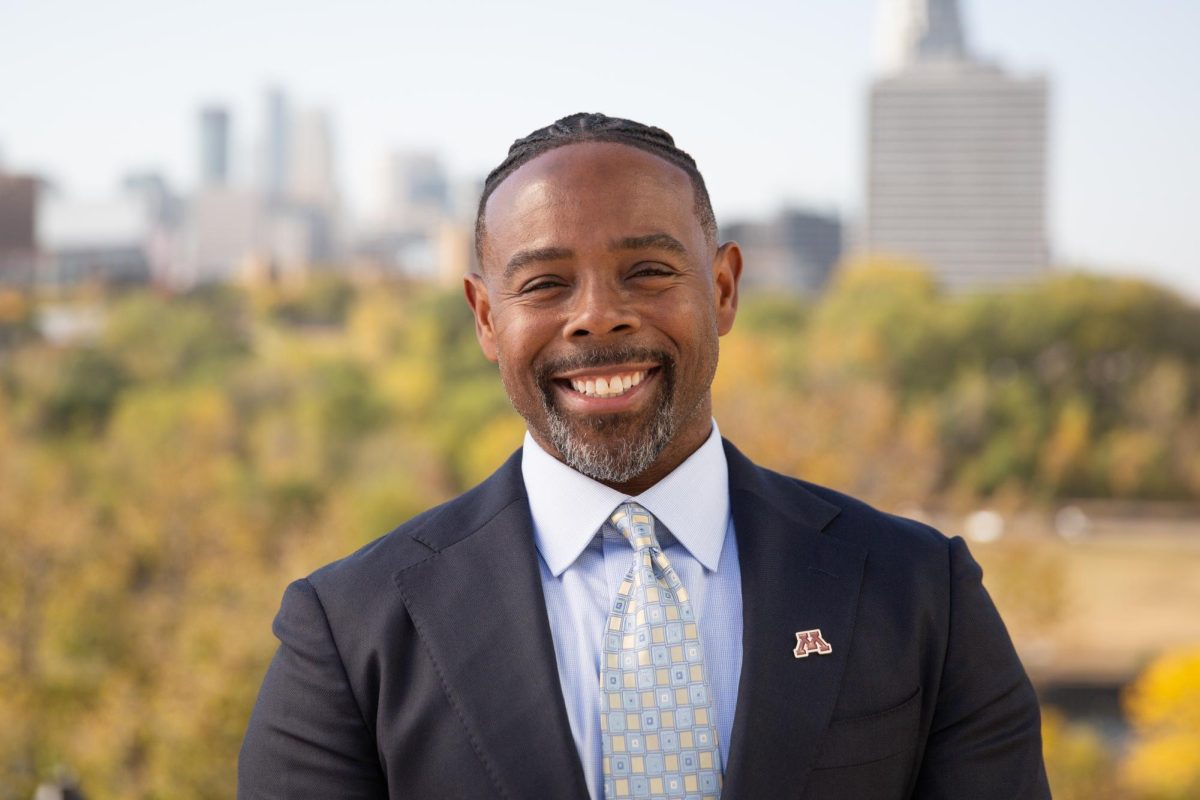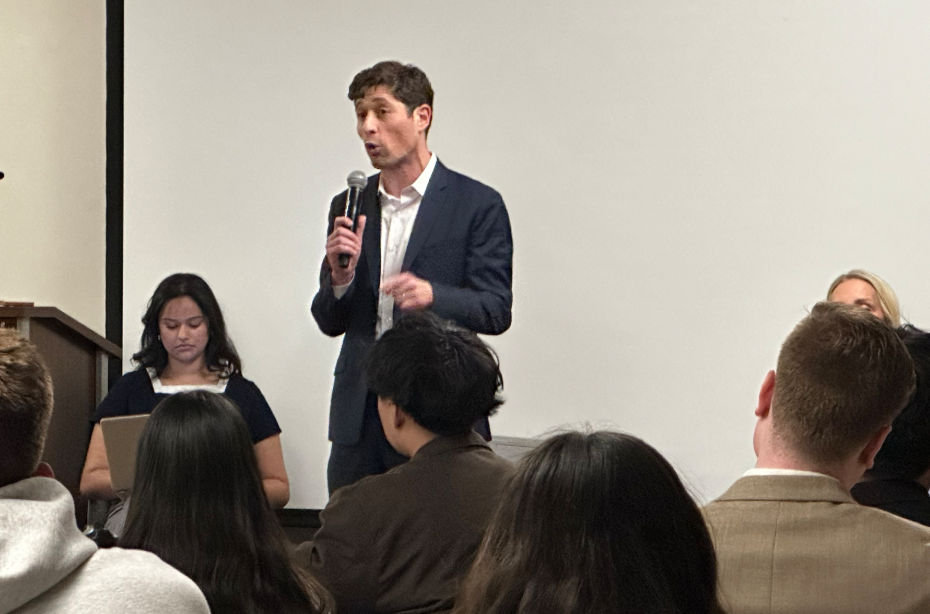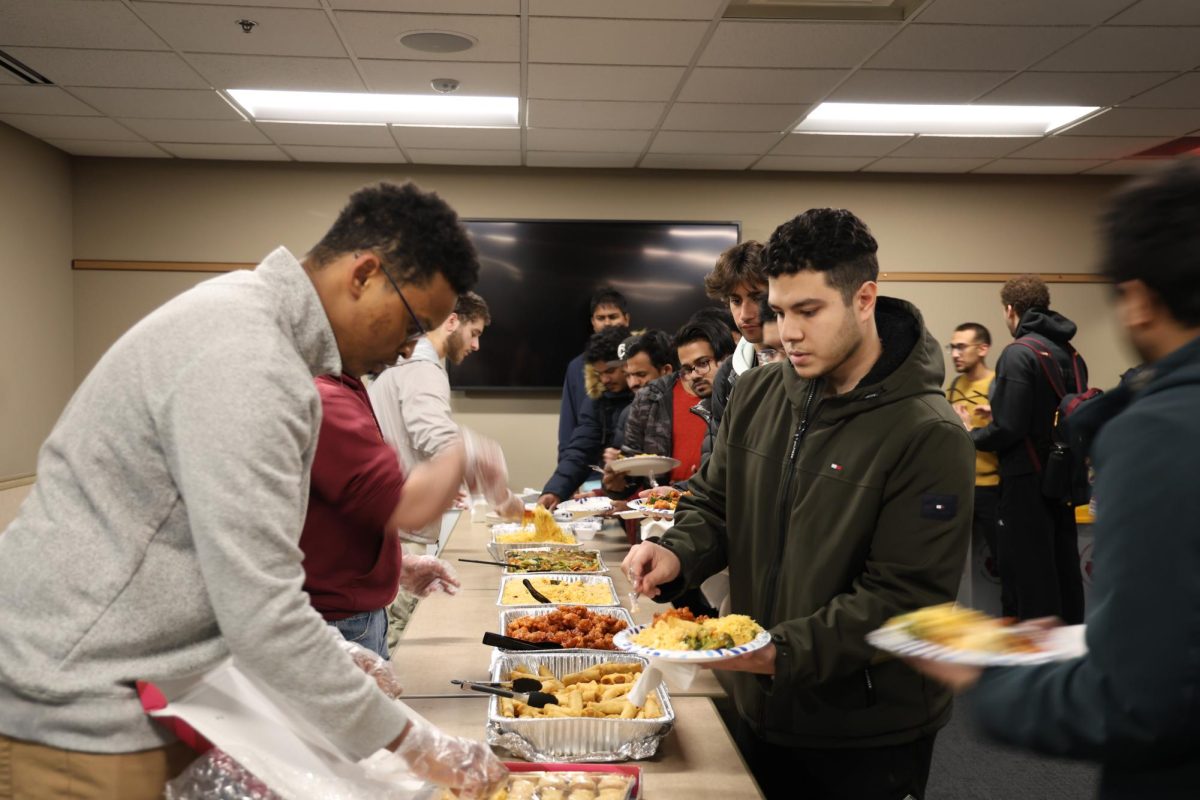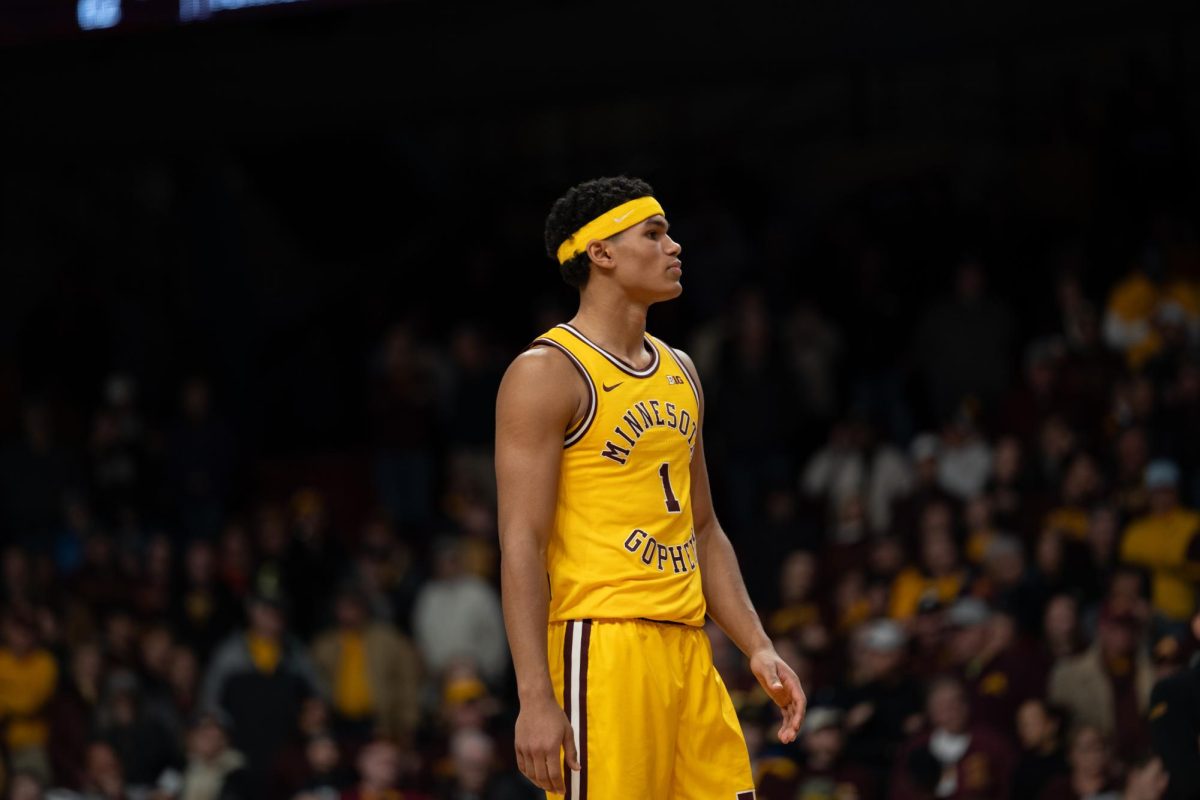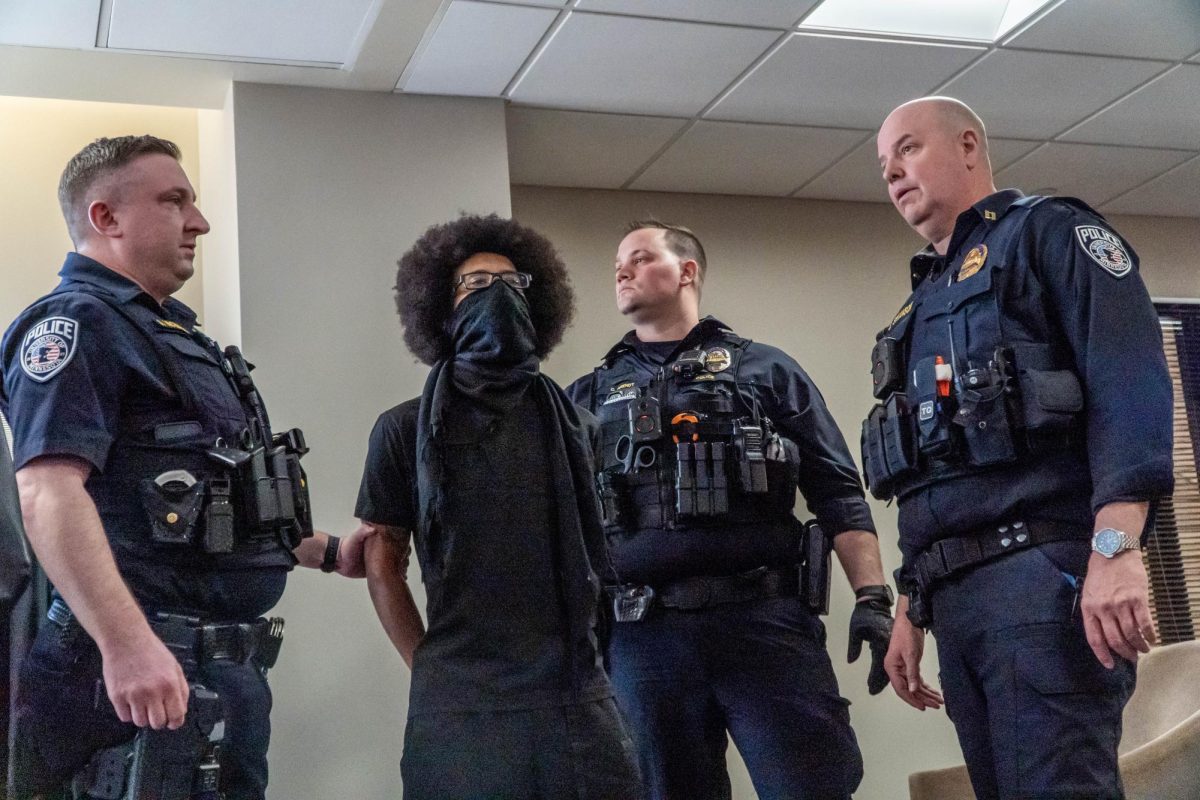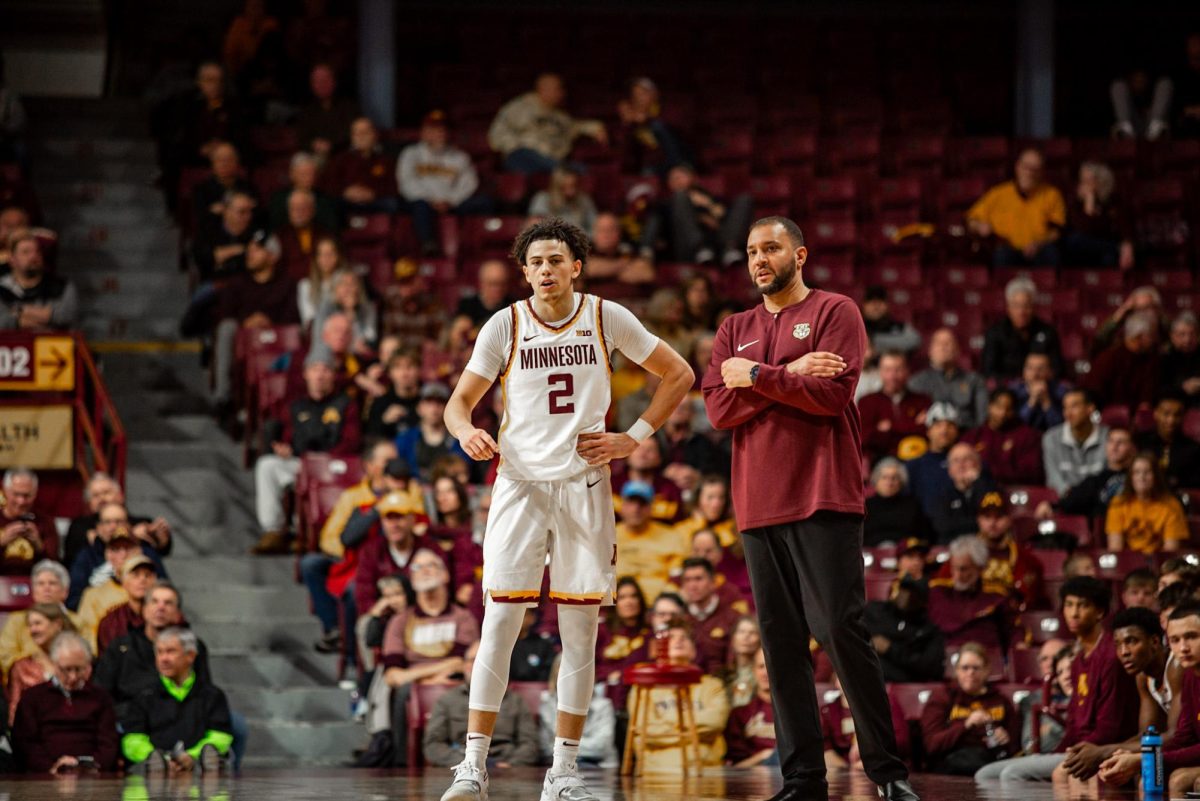In a sit-down interview with the Minnesota Daily on Wednesday, University of Minnesota Interim President Jeff Ettinger discussed how to restore trust after Joan Gabel’s departure, public safety on campus and his goals for his term as president. It was the first in-person interview between the Daily and a University President since March 2020.
Ettinger provided new information on the current partnership between the University and Fairview Health Systems and the role he will play in the hiring of a new chancellor for the Duluth campus.
Minnesota Daily: What are your goals for this term as the Interim President?
Jeff Ettinger: “When I was offered the position as interim president and the conversations with the Board [of Regents], they made it clear that, ‘Hey, as an interim, we’re not looking for you to be a big change agent.’ But by the same token, you can’t just be a caretaker and things happen. Some of the areas that they really asked me to focus on are things that are sort of happening now.
One would be the healthcare partnership question. We’ve reestablished dialogue here with Fairview just last week. We’ll see where that takes us. But we have mutual-notice deadlines by the end of this year so that definitely needs to move forward.
Another area would be just in the area of public outreach –– a sense that maybe, despite a lot of the great things that go on on the campus –– that maybe others don’t really understand fully what we are doing here. One key area for that has been an area of government relations. We were really excited to kick off the search and ultimately be able to hire Melissa Lopez Franzen into that role. She’s totally hit the ground running and is off to a great start there as well.
And then one other aspect of that public outreach [is] the ‘Reputation’ marketing campaign that we’re going to come out with. Dear Minnesota is the theme. It’s really the first time in three years we’ve really done any of that type of communication with the citizens around the state about the great things we do throughout the University of Minnesota system. It features all five campuses and students, faculty, et cetera.”
Daily: How are you adjusting to the role? Because the title is interim president, how are you feeling like you’re settling in?
Ettinger: “I had the chance to start during the summer and have some time to learn from other leaders within the institution, to talk to some of the governance groups on the senate and faculty and staff side.
I went to Farm Fest, I went to the State Fair. More recently, it’s just been so exciting to have the students and the faculty come back. The way my travel schedule worked, I actually got to Crookston, and Morris a couple of weeks [before school], and their RAs and athletes were already arriving.
The next week, I was at Duluth, and it happened to be move-in time and their Welcome Week. Then, of course, the Welcome Week here on the Twin Cities campus was just really fun and exciting. I always remember the Thursday of that week, the dual convocation events we did at Northrop, then a game later in the evening and a huge crowd, and it just was a thrilling day.”
Daily: What are you hearing from students on campus about what the experience is like?
Ettinger: “On the positive side, my interactions with students have been that they seem pretty excited. Where we’re at as a University right now, that we’re as a society –– although certainly, COVID incidents are still occurring, that at least in terms of the restrictions related to COVID seem a little more in the rearview mirror –– we can live a little bit more normal life, and I think people appreciate that.
I think they’re appreciative of the fact that our University system offers a wide array of course opportunities, has a really great graduation rate, does great research and does great outreach throughout the state.
I think students are concerned about cost. So that is something that I certainly want to spend my time here looking into. Are there ways that we can hold down tuition increases and make sure that the higher education experience is sort of a financially viable one and multiple ways?”
Daily: Are there any other things besides the tuition increase that you think you want to look into or see how they can be improved?
Ettinger: “Well, I mean, I was excited to see the progress that had already been made, for example, in the Mental Health Initiative, and that’s something we’re definitely carrying forward.
The Joint Senate Resolution on workplace reinvestment is something we owe a response to. We put a group together and what we’re aiming for early in the calendar year to get back on that. I’ve been working with Special Advisor Karen Diver in the Native Affairs Area to respond to the TRUTH Report. And so we’ll be working on that as well. So those would be a couple of additional examples of areas we’re working on.”
Daily: You’ve had conversations with students. Moving forward this year, how are you going to rebuild the trust between the President’s Office and students after President Gable’s departure?
Ettinger: “I’ll just kind of speak for what I’m doing. I’ve always been somebody who’s interested in listening and learning, even when I talked with the Regents about concerns about the University’s reputation. I tried to be clear that, ‘Hey, that’s not a one-way street.’ It’s not just a matter of grabbing somebody by the collar and saying ‘You just don’t understand how good we are.’ You also have to listen in and there are legitimate concerns that people have.
I [have] just been trying to be open. I had a chance to have a meet and greet with [Daily] editors and walked over to the office to do that and look forward to other opportunities. I’ve done similar outreach, for example, with the Star Tribune Editorial Board. We’ve re-established a calendar where we’re going, every quarter, to have conversations with them as well.
I look for whatever opportunities I can. I mean, there’s obviously a huge number of students. It’s hard to interact with everybody, but I’m eager to learn what I can.”
Daily: How do you feel University efforts to improve public safety around campus have taken effect so far this year? How is the UMPD collaborating with other outside law enforcement agencies?
Ettinger: “For starters, I would express appreciation to the state legislature for providing some extra funding to the University system, specifically in the safety realm. $7 million of it is on non-recurring funds, but we have two years to make sure those investments are well spent. We’re really not looking at staff for those –– it’s more technology, cameras and just really upgrading some of the entry points and that kind of thing.
The added challenge for the Twin Cities, and we saw it all summer, is the notion, ‘It’s not just on campus.’ Honestly, the safety record on campus is quite good. But there have been challenges in the surrounding areas of Dinkytown and Stadium Village. I’ve really been pleased with Chief [Matt] Clark’s collaboration with the other law enforcement agencies in the area to work as hard as possible to make sure we have a safe environment.
In general, I understand that the campus doesn’t just stop at the wall. A lot of students live in those areas. A lot of students go over there to enjoy the area and we need to make it as safe as possible. It’s interesting because we have technology where you’re getting tweets or other information about what might be going on. You’ll sometimes hear about a challenging event occurring, for example, in Dinkytown over the weekend. Sometimes they’d be accompanied by comments such as, ‘The University of Minnesota is doing nothing.’
And then I would also be getting communications from Chief Clark that UMPD does all this overtime, all the preventative efforts, all the collaborative efforts. Its primary jurisdiction is Minneapolis Police for that area, but they’ve been very open. We are having our forces work with them on a collaborative basis. I have been receiving that information and trying to act on it.”
Daily: As a personal opinion, what qualities do you think the next president should exhibit?
Ettinger: “When they had the conversation about the interim job, there was this conversation about, ‘Should you have somebody with a more academic background or not?’ I kind of tend to fall into the camp that they do [need a more academic background] with the permanent person.
I think it’s somebody who understands that the University of Minnesota is a system, that we’re a five-campus system. Yes, the Twin Cities campus is probably the best-known and has more of a national profile, but I think all of our campuses provide benefits and options for students.
Higher education is in an interesting time in terms of some of the financial challenges. We chatted at the beginning about tuition, and that’s a piece of it but the support from the legislature, and not just Minnesota’s legislature –– but other states as well, if you look at it over a number of years, it has declined significantly. If you have your sort of revenue sides declining or constrained we can’t, and we shouldn’t, be just endlessly raising tuition.
And then lastly, I was lucky, honestly, to come in at a time where we had such a strong strategic plan already in place at the University, and it was one that had a lot of student input as my understanding. It will carry us definitely through my interim timeframe, but clearly, that will be something that the new president will have to embark upon.”
Daily: Doubling back to Fairview, what is the University’s plan to provide quality health care across the state if the contract is not renewed by the end of this year?
Ettinger: “First of all, the contract notice provision is this December 31, but the notice was deliberately set up 26 years ago to be a three-year notice provision. So nothing would fall off the cliff immediately, we would have to do a transition in three years.
Our first line of dialogue will be the conversations with Fairview themselves. And those will go in parallel with the announcement of Gov. Tim Walz’s task force on academic healthcare here in the state of Minnesota and focused on the University of Minnesota role.
We educate most of the doctors and a lot of the medical professionals for multiple systems in this state, we certainly are looking at the potential of having avenues in for these other providers to also utilize this system.
So we’ll just have to see how these next few months play out. But clearly, it’s a priority for the University to make sure we take care of the patients, we keep doing top-quality research and we keep educating doctors.
Now if I could just add something on that last point –– because to me, it really caught my attention when I heard about it. The last time any new doctor slots were approved for the state of Minnesota was in the early 1970s when the Duluth campus opened for medical students for the University of Minnesota. And it’s when Mayo’s campus also opened.
There had been no new spots since then. 50 years. Finally, now we have approval, we’re looking in St. Cloud to have a partnership with Centracare that will allow us to have new doctor’s slots there. And Dr. [Jakub] Tolar is also working on making it so –– right now is you do two years in Duluth, and you did two years on the Twin Cities campus –– we’re going to try to make it so that we can accommodate four years in Duluth, and that would free up even more spots than in the Twin Cities.
So I think that’s an exciting avenue, kind of, aside from what happens with the Fairview partnership that we will be able to expand our offerings.”
This interview has been edited for clarity, grammar and length.


